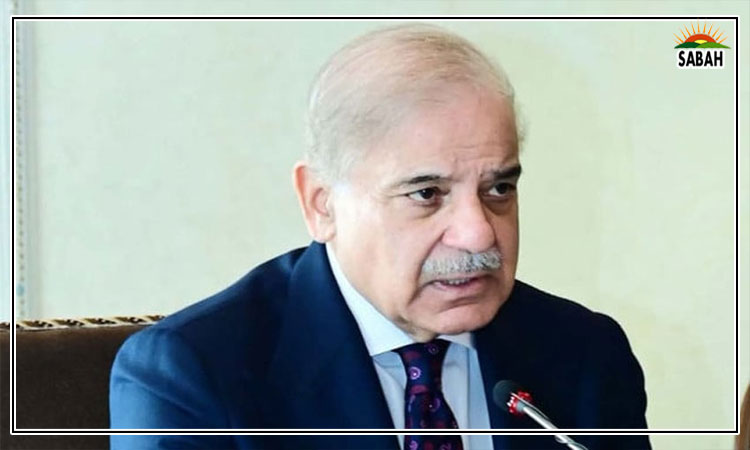The sandwich dilemma…..By Rafia Zakria
IN the past few weeks, as the upsets and upheavals of the FIFA World Cup have played out in Qatar, attention has also been paid to the deplorable conditions facing migrant workers in the kingdom.
Foreign news outlets have spent much time drawing attention to the tens of thousands of workers who have built the venues and who continue to toil behind the scenes to ensure that fans gathered in the Middle East have a good experience.
The reality has been clear to everyone: the labouring classes in the kingdom are imported from elsewhere Pakistan, Nepal and India, among others. These workers together form an underclass whose humanity is treated as secondary to everyone else.
Things are not much different next door in Dubai, in the United Arab Emirates. Whatever cruelties take place in Qatar take place just as frequently in Dubai. And, just like all the other oil producing economies in the region, the UAE has also been getting ready for a post-oil world in which its citizens, accustomed as they are to the oil largesse that has improved standards of living for generations, will not see the cash rolling in.
In that future world, these rich kingdoms must now communicate to their citizens that they will have to work to earn money a seemingly novel concept for those who enjoy Emirati citizenship. Currently, up to 80 per cent of the workforce is composed of foreign citizens who do everything; from writing complicated code, to sweeping the floors.
To make this transition from collecting money to earning money somewhat easier, there must be jobs for this new workforce. Even those who have engineered the scheme appear to realise that the blessed Emirati citizens are not going to be able to compete for jobs on the open market.
The low employment rates among Emirati citizens means few even have the training to hold positions of any sort. In order to fix this problem of low employment and little training, the Emirati government has decided to do what it always does when confronted with a problem: throw money at it.
Private companies operating in the UAE have been told that all private companies that have more than 50 employees must now make sure that 2pc of their workforce is made up of Emirati citizens. The objective is to increase this figure to 10pc by 2025.
The private companies that do not comply with this 2pc quota have been told that from Jan 1, they will be fined 6,000 dirhams per month per Emirati employee not hired. Compliant firms will be eligible for several benefits, including up to 80pc discount in the Ministry of Human Resources and Emiratisations service fees.
The goal is to increase the number of Emirati employees who will then receive on-the-job training for the task as well. Among the incentives for Emirati citizens, the government will pay up to 800 dirhams towards the care of each child of Emiratis working in the private sector; the scheme is applicable until the children reach the age of 21.
Emiratis who lose their jobs in the private sector because of circumstances beyond their control will receive an unemployment benefit for a period of six months.
How will entitled Emirati citizens square working a job with the special status they are used to expecting for themselves?
In ordering private companies to hire 2pc Emiratis, the government is hoping that these same lucky citizens will learn to do at least some of the jobs needed to keep private enterprise functioning. By the time the first five years of the programme pass, there will be at least some Emirati citizens who will be used to having a job.
The government, however, appears to have overlooked one crucial factor: how will entitled Emirati citizens square working a job with the special status that they are used to expecting for themselves?
One recent controversy illustrated the situation well. A few days ago, a private company that provides workers for all sorts of jobs advertised a position for a sandwich maker. The tasks of this sandwich maker were listed therein, as was the fact that the job fell under the 2pc quota that the government was demanding be reserved for Emirati citizens.
The government, it appears, had considered the scenario of Emirati citizens wanting jobs but not having them, but it had not given consideration to the possibility that private companies could reserve jobs but not find Emirati citizens to fill them.
The fact that the job of a sandwich maker was being reserved for an Emirati citizen provoked outrage among many Emiratis, who complained that it was either insulting because the job of a sandwich maker was beneath their elite status or because it appeared to make fun of the government rule which pretended it was just so easy to increase employment among Emiratis.
Either way, no one appears to have been happy with the posting, which has since been taken down. An inquiry into the matter of a company trying to hire an Emirati sandwich maker has also been ordered.
A self-sufficient UAE in a post-fossil fuel world will have to rely on its own to make sandwiches and everything else. That fossil fuel-free future is something the worlds brightest minds are working on and which may be here sooner rather than later.
The UAE government may have come up with a well-resourced scheme to make private companies hire Emiratis but it has yet to resolve how Emiratis can be made to work. In the meantime, Pakistanis who have long been making sandwiches and many other things for the citizens of the UAE will be happy to continue to do so.
Courtesy Dawn












